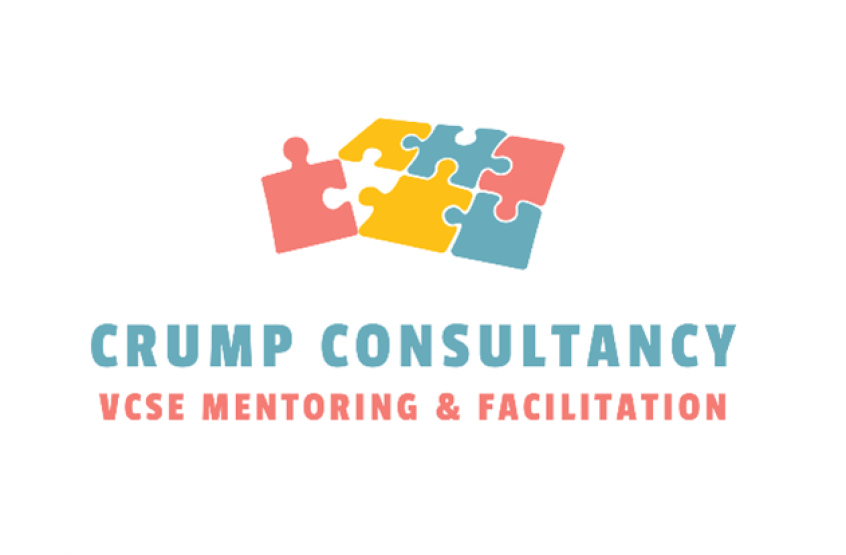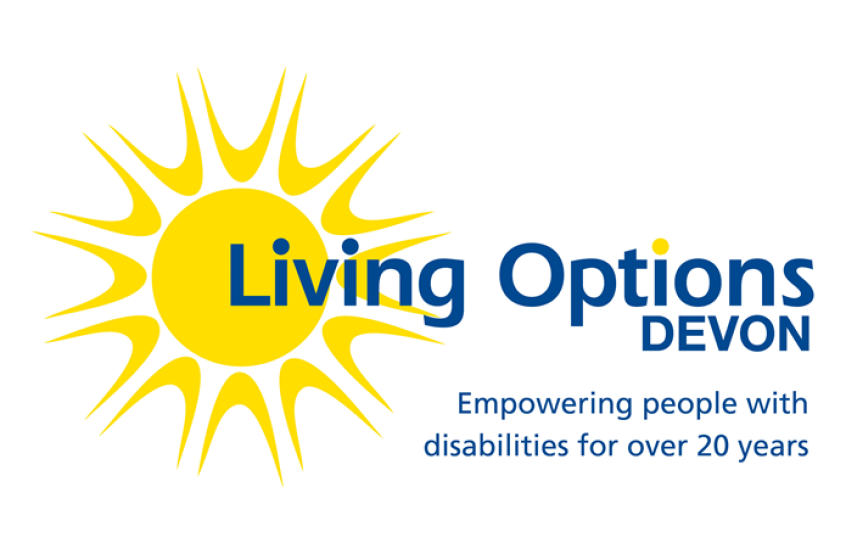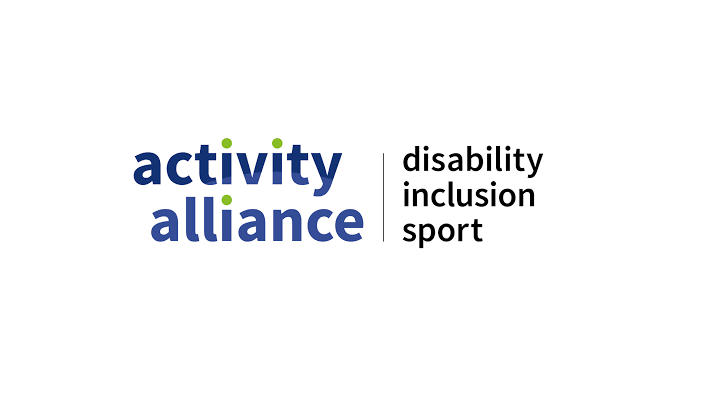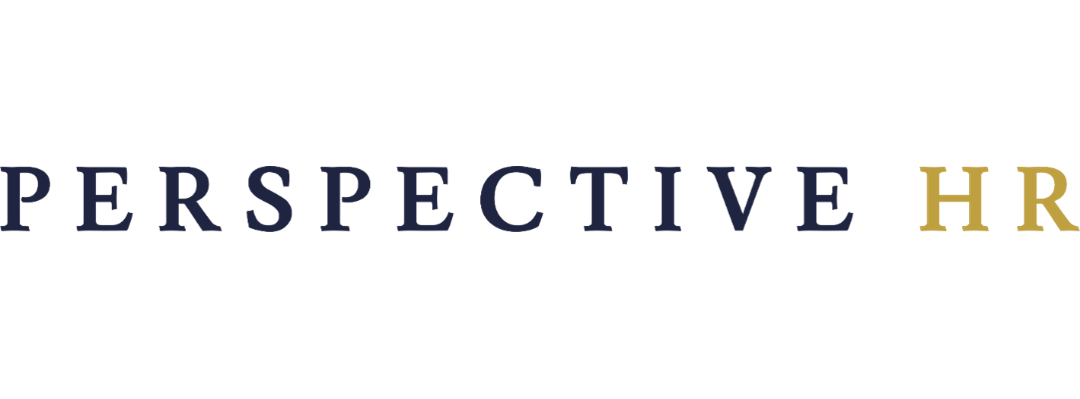Recruitment & retention of staff, volunteers and trustees: An online resource to support Disabled People’s Organisations (DPOs)
These guidance notes are aimed at Disabled People's Organisations (DPOs) and are divided into different sections for ease of use. They provide an explanation of the key principles with additional hyperlinks for those people wanting in-depth information and real-life examples.
Resource contents
Recruitment of staff, volunteers and trustees
Staff recruitment and selection
Stage Two: Attracting the right applicant
Stage Three: Managing the application and selection process
Stage Four: Making the appointment
Volunteer recruitment and selection
Where to advertise for volunteers?
Trustee recruitment and selection
Key considerations and future aspirations for an inclusive Board
Recruitment process key considerations
Retention of staff, volunteers and trustees
Developing an inclusive workforce and supporting Disabled people
Promoting health and well-being
Learning and development opportunities
Organisational development and design
Section one:
Recruitment of staff, volunteers and trustees
The life and blood of any DPO are the people that they work with. Trustees, staff and volunteers make DPOs the fantastic places they are to work. The importance of recruiting and retaining high-quality people cannot be overstated. They are critical to providing the support that local Disabled people need.
This online resource fully explains the whole HR process. However, if you are an experienced DPO and/or are looking for a very quick review of your HR documents, please email us at gyainfo@disabilityrightsuk.org to obtain a comprehensive pack of HR resources kindly supplied free of charge by Perspective HR. The pack contains recruitment, selection, induction, appraisals and probation documents, some of which have been bespoke written by Perspective HR for DPOs.
Staff Recruitment and Selection
For openness and to ensure equity and fairness within the recruitment process, DPOs should have some written Recruitment and Selection Guidelines. Some organisations call this their Recruitment Policy. This document explains the approach your DPO takes when recruiting their staff.
Example: Disability Peterborough's recruitment and selection policy.
More information: For detailed, general guidance around how to manage the application and selection process, Recruitment Process Overview | Factsheets | CIPD
The four main stages in the staff recruitment process are:
Stage one: Defining the role.
Stage two: Attracting the right candidate.
Stage three: Managing the selection and application process.
Stage four: Making the appointment.
Example: Living Options Devon's recruitment and selection guidelines.
Stage One: Defining the role
It is important to be clear about what you need the person to do (Job Description-JD) as well as what skills you need them to bring to the organisation (Person Specification-PS). Remember to articulate your DPO values and organisational culture within those documents.
More information: How to Write More Inclusive Job Descriptions | Monster.com
Every vacancy that arises provides DPOs the opportunity to review its job description and Person Specification in light of the present economic and employment climate and the changing needs of Disabled people. Also, information from the previous employee through their Exit interview will provide important insights into any changes needed.
Example: An exit interview from the DPO Living Options Devon (LOD) .
Exit interviews should be carried out by someone other than an employee's line manager so that they feel comfortable talking openly.
It is important that DPOs show how we are involving people with disabilities and meeting access needs. This should be stated within the JD and PS.
Example: Completed JD and a PS from Living Options Devon including both these requirements.
Example: Disability Peterborough Welfare Rights Caseworker job advert.
Stage Two: Attracting the right applicant:
Internal v external advertisements:
Sometimes, there may be very suitable candidates already within your organisation who just need a bit of additional mentoring and support to develop into the post being recruited to. Note: If the advertisement for any internal appointment is open to all staff, there is no requirement to advertise the post externally. You can widen an internal advertisement to your DPO volunteers and Trustees as appropriate; however, it needs to be clear whether it is an internal or external advertisement.
There are many advantages of internal recruitment:
- It shows you are interested in developing your staff and can contribute to staff retention and morale.
- It can be considerably less expensive than external recruitment.
- It is usually much quicker and less onerous for admin and management teams.
- You have already worked with the people involved, so the selection process might be felt to be more robust.
Disadvantages of internal recruitment include:
- There might be a ‘better candidate’ who could do the job better than your internal pool, thus reducing your competitiveness.
- Overuse of internal recruitment could contribute to unconscious bias by constantly promoting people with similar values and backgrounds.
- You may not have the skills internally required for the post.
Where to advertise: When external advertising, DPOs tend to use a combination of their own websites and commercial job boards. An alternative cost-effective way of external recruitment is to encourage their staff, volunteers, trustees, and service users to share potential jobs through their LinkedIn etc. employee or volunteer.
Recruitment agencies and/or headhunting services can be helpful when recruiting for a CEO and other key senior roles, which are more challenging to recruit to, but ensure you are clear of the pricing structure, including any potential ‘add-on’ charges to avoid any unpleasant surprises!
More information: Recruitment Process Overview | Factsheets | CIPD.
Example: An inclusive job advertisement from Living Options Devon.
Stage Three: Managing the application and selection process
As well as ensuring that the most suitable candidate is selected for the job, it is also important for DPOs to demonstrate best practice to support all candidates to participate fully by anticipating and meeting all their access needs. This will provide them with equal opportunities and ensure they leave the process with a good impression of your organisation, even if their application is unsuccessful.
A well-designed application allows information to be presented in a consistent way, encouraging objective decision-making whilst simplifying the selection process.
Example: Job Application Form from Living Options Devon.
Generally, we would suggest the closing date should be set for no less than two weekends so that candidates who are currently working full-time have time to complete it thoroughly.
Once the closing date for applications has passed and all the applications have been received, the shortlisting process can take place to decide who to take forward to the next stage, which will usually be an interview. To ensure equity and reduce the possibility of a challenge through an employment tribunal, all applicants should be assessed only in relation to the requirements of the person specification using a shortlisting form.
Example: Living Options Devon's shortlisting score.
Applications can be more fairly assessed if a ‘blind’ shortlisting process is adopted. I.e., the application form and personal information (e.g., name, Date of birth, address, age etc.) are submitted on separate forms, with the shortlisting panel not being able to access any personal information until after completing the shortlisting. Exceptions might be if the person has a disability or other protected characteristic which should enable them to attend an interview by meeting the essential requirements, regardless of their score, or if the person has declared a conviction, which should be considered if they are working with any vulnerable adults. (e.g. people with a Learning disability or who lack capacity etc.).
Example: Disability Peterborough's equal opportunities form for candidates to complete.
More information: for how to assess the candidates to find out which is most suitable for the role, please visit Selection Methods | CIPD
Stage Four: Making the appointment
This is the stage where the DPO is entering into a contractual agreement with the new appointee, so correct procedure, correct paperwork, and timeliness are essential.
More information: Recruitment Process Overview | Factsheets | CIPD for further details about all four stages of recruitment.
Example: A recruitment policy from Disability Peterborough.
Volunteer recruitment and selection
Volunteers are a very valuable resource that all DPOs rely on for delivering their work and are an essential part of any DPO's team. Investment in the recruitment process to ensure the best possible candidates are attracted for volunteer roles is money well spent.
As Living Options Devon states in its volunteering policy, a one-size model does not fit all. Volunteering is a gift relationship; usually, there is no intention to enter a legally binding contract. However, to ensure you attract and retain your volunteers, it is important to provide induction, training, reviews, and other ‘formal’ processes that are suitable and acceptable to the volunteer. It is also important to decide whether your volunteers will undertake work suitable for paid staff or not. Regardless, volunteers require satisfying work and personal development, and that reasonable expenses are reimbursed.
Example: Living Options Devon's volunteer policy.
While volunteers are not subject to Employment Law requirements in the same way as paid staff members, they can be hard to find, and they do have the potential to enhance or reduce the organisation's reputation. Therefore, using a similar process to recruiting paid staff can be beneficial for recruiting volunteers. DPOs should follow the guidance for the four stages for recruiting paid staff as outlined above. This will ensure that you recruit those volunteers best suited to the role required.
As volunteers are not being paid, to attract the right person, you might decide to flex or adapt the role to meet the specific requests or requirements of volunteers, which is fine, but do consider these questions when recruiting volunteers:
- Are they able to undertake the role/s the charity needs to be undertaken?
- How much management/paid staff time will it take to supervise, train, and support them?
- Have the necessary checks been undertaken, and that they are safe to work with your clients? Some Disabled people might be considered to fall within the category of ‘vulnerable adults’ so DBS check requirements must be always followed.
Where to advertise for volunteers?
You could use the same channels as for paid staff members, but that might prove expensive. Most areas have local infrastructure charities (e.g., Council for Voluntary Services and Rural County organisations) that specialize in supporting and reaching out to volunteers who should be able to advertise your volunteering opportunities free of charge.
More information: The Charity Commission has produced guidance on recruiting and managing volunteers, How to manage your charity's volunteers - GOV.UK (www.gov.uk).
More information: Advertising volunteer roles with charity Job is free, Work for UK Charities: Find a Career with Meaning | CharityJob
Trustee recruitment and selection
Trustees have a very responsible and important role to play in the organisation's success. The responsibility for recruiting trustees lies with the Chair of Trustees, not the CEO as the CEO reports to the Board of Trustees. In practice, trustees will often ask the CEO to administer and/or support the process in some way.
Board members and staff are essential to the well–being and effectiveness of every DPO. An effective Board of Trustees is a prerequisite to a DPO achieving its objectives. The Board should be representative of the people the DPO works with and must have all the knowledge and skills required to run the charity. Individual trustees must have sufficient knowledge, both of trusteeship in general and of the charity's activities, to enable them to conduct their role and to represent the charity at meetings and other events.
For a Disabled People's Organisation to demonstrate that it is Disabled people-led, it is accepted that a minimum of 75% of the Board of Trustees should have lived experience of disability. DPOs should also strive to ensure that over 50% of their paid staff and volunteers have lived experience.
We know that an inclusive culture should be embedded throughout an organisation, including your board. All board members are responsible and accountable for equality, diversity and inclusion. There should be a commitment from both the CEO and Board to develop an action plan for board members. This should include learning opportunities, resources and listening to lived experience to support inclusive recruitment practices and influence decision-making.
Key considerations and future aspirations for an inclusive Board
- Recognition that debates are needed within a board encourages new thinking and progression.
- Important to prioritise equality, diversity, and inclusion among board members to ensure you have a diverse board.
- Every board member should bring a unique way of thinking.
- Board members need to be representative of their organisation.
Recruitment process key considerations
- Start supporting individuals before the recruitment process, and allow people the opportunity to meet board members and ask questions.
- Important to consider whether less experienced individuals need support to be board-ready.
- Mentoring schemes can be effective but require time and capacity commitments.
- Review the accessibility of current board meetings and ensure you are Disabled people ready.
- Allow people to apply for roles in a way that suits them.
- Anonymise the application process and manage your biases.
- Provide clear, honest guidance about time commitments and what is required from an individual.
- Recognition that perceptions of a board are outdated; a cultural change is needed to encourage people to apply.
- Promote who is on the board, what they do, and what they value in their position.
- Allow people a chance to get to know board members.
- Be more accessible and create and promote easy-read documents.
- Avoid tick box exercises during the recruitment process.
- Advertise the organisation's values within the recruitment process.
As with volunteer recruitment, the principles for trustee recruitment should be the same as for paid staff members, so the four stages outlined above should be followed for trustee recruitment.
More information: The Charity Commission has produced some very useful guidance notes, Finding new trustees (CC30) - GOV.UK (www.gov.uk).
More information: Advertising unpaid Trustee roles with charity Job is free, Work for UK Charities: Find a Career with Meaning | CharityJob
It is important that DPOs state the minimum number of Trustees having a disability or are from the Deaf community. The Board of Trustees needs to possess a range of skills and experiences so they can fulfil their individual roles on the Board.
Example: Living Options Devon's Trustee Recruitment Policy.
Section two:
Retention of staff, volunteers and trustees
Having successfully recruited some great staff, volunteers, and trustees, it is important to retain them within the organisation where possible. This section provides information and guidance for DPOs around the notion of retention and how it might be achieved within your organisation. According to the CIPD turnover and retention factsheet Employee Turnover & Retention | Factsheets | CIPD, people resign for many different reasons. Sometimes, it is the attraction of a new job or prospect outside the workforce that ‘pulls’ them. On other occasions, they might not be happy with their current job. These ‘push’ factors range from a lack of career opportunities to organisational changes.
Effective communication with staff about what they are entitled to can contribute to staff retention.
Example: Disability Peterborough's employee handbook which explains company policy.
A Retention Policy explains what the DPO will do to retain its staff. The key areas for DPOs to consider when looking to improve staff, volunteer and trustee retention are.
- Effective Induction programme
- Promoting Access
- Promoting Health and Wellbeing
- Learning and Development opportunities
- Organisational Development and design
- Employee engagement
- Flexible/Hybrid working arrangements.
- Staff benefits offered.
- Pay and rewards Policy.
- Volunteer Policy
- Trustee Recruitment policy
- Exit Interviews
More information: About staff retention Employee Engagement & Motivation | Factsheets | CIPD
An effective induction programme is a significant step towards the delivery of high-quality support for Disabled people and can help to reduce staff turnover and increase long-term staff retention. Ensuring that new employees are adequately supported through a thorough induction and beyond reduces the risk of staff feeling out of their depth and helps new team members fit comfortably.
Example: Living Options Devon's induction checklist.
As part of the induction process, it is good practice to ask staff to complete a medical emergency questionnaire for use by first aiders should the need arise.
Example: Living Options Devon's medical emergency questionnaire for new employees.
Developing an inclusive workforce and supporting Disabled people
For many years now, disability organisations have been employing a significant % of Disabled people within their organisations. That is why they are experts in access issues and well-placed to demonstrate best practice when supporting their staff, volunteers, and trustees to identify and meet any access requirements.
Activity Alliance believe a diverse and person-centred workforce is one of the most significant assets in any organisation. Developing a strong inclusive culture and supporting your workforce to thrive helps to engage everyone, including disabled people and people with long-term conditions. They suggest the following will help make your workforce inclusive:
- A whole organisation focuses on disability regardless of role.
- A person-centred and co-produced approach driven by staff and the needs of disabled people.
- Inclusion as an integral element of workforce planning and recruitment
- Diversity and representation are valued in all aspects of business and services.
- Knowledgeable teams equipped to succeed and confident to deliver inclusive services.
- Positive attitudes and perceptions, open to change, learning and trying innovative approaches.
- Advocates of inclusive practice, engaged in professional discussion and actively developing best practice.
- Embedded check and challenge processes
Example: Activity Alliance's inclusive workforce practices.
The way in which trustees, directors and managers lead the organisation will create a culture of inclusivity.
Example: Activity Alliance's tips on developing inclusive leadership.
Example: Living Options Devon staff give tips and hints for best practice. Information and reflections from a wheelchair user employed by Living Options Devon DPO about her experience as an employee and tips for creating an inclusive workforce.
When it comes to working with Deaf employees, communication between yourself and the employee is imperative to enable the employee to learn/train well and progress to various levels of skills. Conversation within the workplace is a barrier for Deaf people, which can make them feel lonely at work and left out of social events. Knowing if any of your employees use BSL (British Sign Language) can be useful to get an idea of how the Deaf employee can fit in with the team. Access to work is available for all employers to apply for funding to pay toward job interviews, full employment training, Deaf Awareness Training, equipment, note takers and BSL interpreters. This can ensure that the Deaf employee can fulfil the role they are employed to do without barriers.
Example: Information about best practice when employing a Deaf person (written by a BSL user employed within Living Options Devon).
Example: Best practice when booking BSL interpreters.
Promoting health and well-being
DPOs are known to really understand and recognise the importance of an integrated approach to employee health and wellbeing. Many local disabled people know that if they get a job or volunteer with a DPO, they will work with people who understand how to meet their access needs best. By going that ‘extra mile’ with respect to the employees’ well-being can become the organisation's key Unique Selling Point (USP) within the employment market. According to the CIPD, paying attention to the health and well-being of the organisation's employees can prompt higher levels of engagement and productivity while fostering good organisational culture and commitment.
The links below have been selected to enable DPO CEOs to promote initiatives from mental health to financial well-being to help employees and volunteers build positive habits and manage their health.
It is a good idea for DPOs to have an inclusivity strategy.
Example: Factsheet about writing an inclusive strategy by Activity Alliance, which, although aimed at the leisure industry is equally applicable for DPOs.
You might like to use a well-being survey to check how supported your staff feel.
Example: Disability Peterborough's well-being survey.
The Chartered Institute of Personnel and Development (CIPD) has produced a series of useful factsheets designed to help us understand the links between work, health and wellbeing and the role of DPOs in adopting an organisational approach to wellbeing.
More information: Wellbeing at Work | Factsheets | CIPD
The CIPD recommends the following to support employees at work with mental health:
- Prioritise mental health in the workplace by developing and delivering a systematic activity programme.
- Proactively ensure work design and organisational culture drive positive mental health outcomes.
- Encourage employees to prioritise self-care and self-management to manage their symptoms and sustain their health and work.
- Provide valuable practical and emotional support to employees through work groups and colleagues.
- Help employees access the work adjustments and support needed to manage their health and work effectively.
- Support and guide managers so that they feel equipped to have sensitive and supportive discussions with staff.
More information: Mental health at work commitment | CIPD.
Workplace stress According to the Chartered Institute of Personnel Development (CIPD):
- The COVID-19 pandemic has increased levels of work-related stress.
- The rate of self-reported work-related stress, depression or anxiety was higher in 2020/21 than the pre-pandemic levels in 2018-19.
- Work-related stress accounted for 57% of days lost to ill health.
- Two-fifths (37%) of respondents report that stress-related absence has increased over the past year, and just 8% that it has decreased.
Employers should approach stress management proactively, focusing on prevention and early intervention and not just responding when a problem becomes significant or when someone goes on sick leave.
There are several approaches organisations can take to address stress at work.
The 2022 CIPD health and well-being at work survey report identifies the most common methods used to identify and reduce stress in the workplace:
- Employee assistance programme.
- Flexible working options/improved work–life balance.
- Staff surveys and/or focus groups to identify causes.
- Risk assessments/stress audits.
- Training for line managers to manage stress.
- Training aimed at building personal resilience (such as coping techniques and mindfulness).
- Involvement of occupational health specialists.
- Stress management training for the whole workforce.
- Written stress policy/guidance.
More information: Stress at work: identify signs of stress, address stress at work and distinguish between stress and pressure, Stress in the Workplace | Factsheets | CIPD
Example: Stress Risk Assessment from Perspective HR.
Ensuring good access to sport and activity opportunities within the workplace will also encourage better retention of staff and volunteers. The Activity Alliance Annual Disability and Activity Survey (June 2023) found:
- Disabled people were more likely to say they wanted to be more active than non-disabled people (77% vs 54%).
- Four in ten disabled people (37%) said the cost-of-living crisis has affected how active they are, versus three in ten non-disabled people (32%).
- Six in ten disabled people (60%) also reported that the increase in cost of living has reduced how much they socialise.
- Many disabled people fear that being more active will result in their benefits or financial assistance being removed (37%).
- Disabled people are three times more likely than non-disabled people to feel lonely always or often (23% vs 8%). Two-thirds of disabled people who felt lonely agreed that being active could help them feel less lonely (65%).
More information: 10 great ideas to encourage an inclusive workforce for disabled people from the Activity Alliance Annual Disability and Activity Survey (June 2023) | Research | Activity Alliance.
More information: Activity Alliance has great resources to encourage a more active and healthy workforce. Activity Alliance | Disability Inclusion Sport
Learning and development opportunities
A good induction is one of the most important things a DPO can do to encourage staff to continue with the organisation.
Example: Living Options Devon's induction checklist.
As staff continue with the organisation, ongoing training and development support is another way to ensure they want to stay with your organisation moving forward. This should be linked to the employee's annual performance review process.
Example: Living Options Devon's training and appraisal/performance policy.
Example: Disability Peterborough's appraisal form.
To understand more about learning theories for the workplace, learning methods, digital learning, L&D strategy, coaching and mentoring, and benchmarking learning. We would suggest you visit the Learning and Development resources | CIPD And/or for Factsheets, guides, reports, tools, and employment law, please see: CIPD | CIPD The Professional Body for Human Resources and People Development
Organisational development and design
According to the Chartered Institute of Personnel and Development (CIPD), organisation design and development can be vital in enabling growth, longevity, and relevancy within a business. Their Profession Map provides clear insights into the key knowledge areas of understanding organisational culture and change. This includes areas such as Job Design, Organisational Development, leadership in the workplace, PESTLE Analysis, organisational climate and culture, SWOT analysis.
More information: Organisational Development and Design resources | CIPD.
For DPOs, building inclusion into the design is key. The CIPD undertook a survey inclusion at work in 2022, and their recommendations are:
- Build an evidence-based long-term plan or strategy with impact measures to track progress.
- Take a data-driven approach to gain buy-in, investment and maximum impact.
- Critically assess your people management approach with an I&D lens.
- Enable managers, including through job design and training on core people management skills, to fulfil their key role in creating inclusive workplaces.
- Support leaders to champion I&D as role models and hold others accountable.
- Tailor your I&D approach to your organisation context.
- Take a long-term view; do not take your foot off the pedal.
More information: Equality, Diversity and Inclusion resources | CIPD.
Investigating why people leave is important in organisational design. Exit interviews are a great way to find out why someone has decided to leave their employer. However, it is important that they are done sensitively and in a way that feels supportive to the outgoing employee. They should be carried by someone who is not their line manager or who worked with them routinely. Ideally, the person selected for the interview will already have a good rapport with them and is more senior than the employee.
Supporting flexible, hybrid and homeworking arrangements can positively impact staff retention and morale if applied logically, equitably, and fairly. There are certain circumstances when an employee may have the right to request flexible/hybrid or homeworking arrangements (e.g., due to access needs or carer responsibilities). Therefore, written policies and management training in this area are essential to ensure consistency of approach.
A flexi-time scheme allows staff to have an element of flexibility over their working hours. It involves flexible start and finish times around ‘core working hours’ (when attendance is required) and allows staff more choice, subject to the operational requirements, over their working hours. Flexitime differs from Time off in Lieu (TOIL), which can only be accrued through additional hours worked requested or approved in advance by a line manager or a set requirement to undertake additional hours of work. This would normally be in relation to a specific activity or piece of work.
Example: Perspective HR flexi-time policy template.
Homeworking arrangements should be supported in appropriate circumstances either occasionally (to respond to specific circumstances or to complete tasks) and in some cases on a regular (full or part-time basis). In addition, occasional or permanent homeworking can, in certain circumstances, be a means of accommodating a disability and can be requested as a means of flexible working policy. According to Perspective HR, there are several circumstances in which the ability to work from home on an occasional or temporary basis may be of benefit to employees:
- When a child or elderly relative becomes unwell, or arrangements for their care break down at short notice.
- When, despite being fit to work, travelling to the office is difficult (for example, due to recovery from an injury such as a broken leg).
- When public transport has been disrupted (for example, by the weather or by a strike that affects your travel arrangements); or
- when a quiet, uninterrupted work environment will assist in dealing with a backlog of administrative tasks or in writing reports to a deadline.
Example: Homeworking policy from Perspective HR.
Hybrid working During COVID, many staff were required to work from home for the first time in their career, and many of them found that despite the potential challenges, they enjoyed the freedom it offered, not to mention the absence of long and time-consuming commutes to work. This has created an interesting challenge for DPOs who need to balance the need for the service with the preferences of their staff.
Example: Perspective HR’s Hybrid policy template.
More information: Flexible working practices-benefits and implementation, employment law, Flexible and Hybrid working resources | CIPD.
Employee engagement has been shown to increase retention levels and increase staff motivation. Providing employees with option appraisals and asking staff opinions in relation to major organisational change at the earliest opportunity can often avert an HR crisis in which good staff decide to leave the organisation. People find uncertainty difficult, so keeping them informed, even if a decision is inevitable for commercial or other reasons, can help reduce anxiety and stress in the workplace.
More information: Hints and tips on engaging with employees more effectively, Employee Engagement resources | CIPD.
Retaining volunteers
To retain DPO volunteers, following the guidelines outlined for paid staff above is advisable. Particular attention should be paid to
- After their initial appointment, an excellent quality induction programme will occur as soon as possible.
- Interesting, relevant, and varied free training opportunities
- Being provided with a named staff member to provide support and guidance on a day-to-day basis with clear instructions left for the volunteer who they should go to if their named staff member is unavailable.
- Regularly review progress and discuss any concerns or changes that need to be made to their role description.
- Invitations to relevant staff meetings and, where appropriate, kept informed of changes, developments, and general organisational updates.
- They are encouraged to have their say and express their views about matters concerning the organisation, particularly the project/department in which they work.
Example: Living Options Devon's volunteer policy.
Activity Alliance Get Out Get Active (GOGA) programme focuses on disabled and non-disabled people taking part in activity together. It is a successful programme which is offered in various locations throughout the UK and has lots of learning and resources attached to it.
More information: GOGA Volunteering Toolkit.
Retaining trustees
Trustees have a very responsible and important role to play in the success or otherwise of the organization. The responsibility for retaining and motivating Trustees lies with the Chair of Trustees.
The reasons for volunteering to become a Trustee are varied. It may be that they want to ‘give something back’ having received support from the organisation or similar organisation in the past; it might be they want to gain new skills, or it could be that they are interested in the concept of civil society on a more principled level.
Within DPOs, because a high proportion of trustees will have lived experience, careful attention should be paid to meeting their access needs both for Board attendance, and also to enable all trustees to participate in other aspects of the organisation as appropriate. As with other volunteers, a high-quality induction is essential.
Example: Living Options Devon's induction checklist.
Consideration should be given to minimum and maximum tenure for trustees, which should be long enough for them to learn the skills and build their networks but provide an opportunity to bring in new people as appropriate.
It is important for the Board to have a range of complementary skills and to work well as a team. To this end, the Board should regularly undertake a ‘skills audit’ of the Board to ensure that its members offer a range of skills, knowledge, and experience.
More information: Perspective HR skills matrix for trustees.
Free, appropriate and relevant training is an excellent way of supporting and motivating Trustees.
Staff and volunteer satisfaction surveys are an excellent way for DPOs to determine how well they are doing around the retention issue.
Check how supported your staff are feeling; you might like to use a well-being survey.
Example: Disability Peterborough wellbeing survey.
Written in partnership between:

Disability Rights UK is the UK's leading organisation led by, run by, and working for Disabled people. They work with Disabled People's Organisations and Government across the UK to influence regional and national change for better rights, benefits, quality of life and economic opportunities for Disabled people.

Diana Crump of Crump Consultancy was CEO of a successful County-wide DPO for over 17 years. She offers fully accessible strategic support, Board/SLT away day facilitation and mentoring services for DPO CEOs. Her fee structure is based on organisational turnover to ensure that all DPOs can benefit from her expertise and support, regardless of their size. Contact her at diana@crumpconsultancy.co.uk
Many thanks to all those organisations who gave their time and permission to share resources so generously to this project:

Living Options Devon is a DPO that supports Disabled and Deaf people across Devon to live the life they choose. They offer a range of help and support services for people with a long-term health condition, disability and /or who are Deaf, where British Sign Language is their first or preferred language. Services offered include counselling, independent advocacy, engagement work, countryside mobility (an all-terrain wheelchair hire service) and a range of services run by Deaf people for Deaf people.

Activity Alliance is the leading voice for Disabled people in sport and physical activity, and its vision is fairness for Disabled people in sport and physical activity. They want to create a fairer society for everyone. A place where everyone can be active however and wherever they want to be. Activity Alliance's research and insight lead the way in helping to understand the barriers to sport and physical activity for Disabled people. They push for inclusion to be at the heart of all plans and work closely with organisations across various sectors to embed inclusive practice and change attitudes towards Disabled people in sport and physical activity for the better.

Disability Peterborough is a DPO that has been supporting local people for over 30 years. A DPO employing trained staff who are available to advise on all things relating to physical disabilities. They provide a telephone helpline, disability benefit support and casework, care and support services and much more.

Chronically Brown is a non-profit organisation working towards tackling the stigma of disability within the South Asian community. They also work towards diversifying the Disabled community with campaign projects such as #desiabled. They have a range of services designed to work towards this such as workshops, discussion groups and many online resources.

Perspective HR is an organisation that specialises in supporting organisations with human resources and has helped over 400 organisations develop simple and effective approaches to the management of their most vital asset, their people. They offer services on HR and employment documents, HR and employment law advice, online HR management systems, and leadership and employment training. To find out more, click here.
